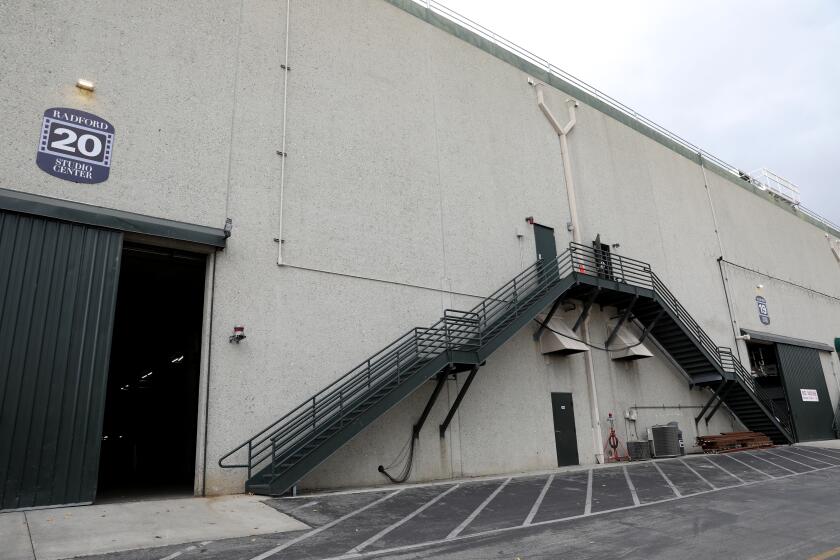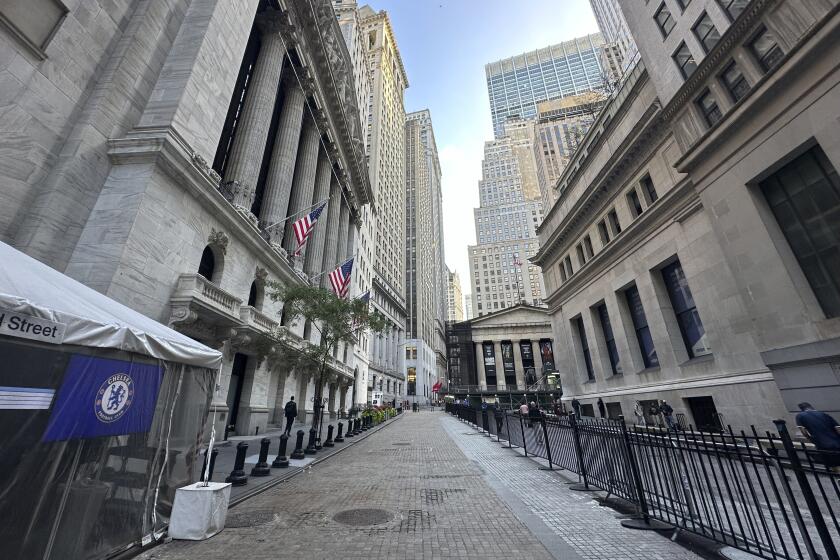MCC High-Tech Consortium Selects New Chief
Microelectronics & Computer Technology Corp., a high-profile research consortium of 20 technology companies, has selected longtime Texas Instruments executive Grant A. Dove as its new chairman and chief executive.
Dove, 58, currently is an executive vice president at TI heading its Geophysical Services and Data Systems groups, among others. He succeeds Bobby Ray Inman, a retired admiral, former head of the National Security Agency and former deputy director of the CIA, who left MCC at the end of last year. An engineer who has worked at TI for 28 years, Dove doesn’t have the national prominence that Inman brought to the consortium, but, associates say, possesses the technical expertise that Inman lacked and that the consortium sorely needs at this stage in its progress.
Dove’s selection was announced after an MCC board meeting Wednesday morning. Dove attended the meeting, then left on a business trip for TI to London. Dove will take early retirement from TI in July, serving meantime as a consultant to MCC. He will assume his new duties at MCC on July 6.
His appointment comes at a critical time for MCC. The three-year-old consortium is in a “transitional stage,” officials there concede, and is confronting possible sweeping changes in its membership requirements and in its funding sources. The consortium is beginning to come to grips with the difficult and largely unprecedented task of helping its member companies transform MCC’s research efforts into real products or, in some cases, improved manufacturing processes.
Publicly, member companies continue to express patience and satisfaction with MCC’s projects. But some industry observers say the pressure on the consortium to begin yielding results, combined with Inman’s departure and the impending departure of three shareholder companies, has put a heavy strain on the research cooperative.
Allied-Signal, Unisys and Lockheed--have said they will leave MCC at the end of 1987, and yet another company, General Electric, may also pull out. The departures of Allied-Signal and Unisys, along with GE’s re-evaluation of its participation, stem from mergers that brought them into the consortium. Lockheed said its withdrawal was for financial reasons and not a reflection of dissatisfaction with MCC’s work.
MCC recently appointed Nasir Kahn as its director of business development. Among his other duties, Kahn is charged with finding replacements for departing shareholders.
Also on Wednesday, MCC’s directors agreed to consider methods of obtaining government funding for some of its projects. The consortium said it would still not enter competitive bidding for government contracts or do classified research, but that it would be “more receptive” to possible government participation in its work and “at some point may submit unsolicited proposals” for funding.
In a statement, Dove said he was “excited about the challenge of creating and transferring first-rate technology to a diverse group of leading U.S. corporations.” Dove also acknowledged the need “to accelerate the technology transfers into the member companies.”
Dove joined Texas Instruments in 1959. He was appointed corporate assistant vice president in 1967, vice president in 1968, group vice president in 1972, senior vice president in 1980 and executive vice president in 1982.
From 1982 to January of this year, his responsibilities included a number of groups, including defense systems and electronics, materials and controls, geophysical services, Latin America, marketing and consumer products. Since TI implemented a management shift in January, Dove has remained in charge of geophysical services and taken over responsibility for corporate development, which includes TI’s central research and development activities, strategic planning, economic analysis and corporate marketing and communications.
Although Dove is not well-known throughout the industry, those who have worked with him say he is a highly competent, affable manager whose personal style will contrast greatly with that of his predecessor at MCC.
Inman, who used his extensive connections and influence, especially in Washington, to help MCC get established, operated with an “imperialistic” attitude, said one MCC associate. Dove, on the other hand, “is easy-going, and down-to-earth.”
More to Read
Inside the business of entertainment
The Wide Shot brings you news, analysis and insights on everything from streaming wars to production — and what it all means for the future.
You may occasionally receive promotional content from the Los Angeles Times.






